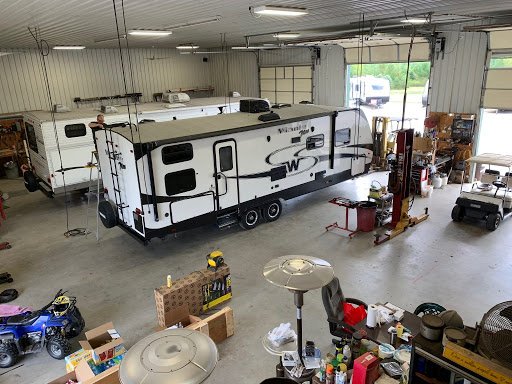If you’re an avid RV enthusiast, you know that owning a recreational vehicle comes with its fair share of maintenance and repair responsibilities. From minor fixes to major overhauls, keeping your RV in top shape is crucial for ensuring your safety and comfort on the road. In this comprehensive guide, we’ll cover everything you need to know about RV repairs, from common issues to DIY solutions and when to seek professional help.
Common RV Repairs
Before we dive into the specifics of RV repairs, let’s take a look at some of the most common issues that RV owners face:
- Roof Leaks: Leaks in the roof can be caused by a variety of factors, including age, wear and tear, and improper installation. If left unchecked, roof leaks can lead to water damage and mold growth.
- Plumbing Problems: From leaky faucets to clogged drains, plumbing issues can range from minor annoyances to major headaches. Regular maintenance and inspections can help prevent these problems.
- Electrical Malfunctions: Electrical problems can manifest in various ways, such as flickering lights, dead outlets, or malfunctioning appliances. Proper wiring and regular inspections are essential for preventing electrical issues.
- Appliance Failures: Refrigerators, stoves, and other appliances can break down over time. Regular maintenance and proper usage can extend the lifespan of your RV’s appliances.
- Tire Blowouts: Tire blowouts are a common occurrence on the road, especially if your tires are old or improperly inflated. Regular tire inspections and proper maintenance can help prevent blowouts.
DIY RV Repairs
While some RV repairs require professional expertise, there are many tasks that you can handle on your own. Here are a few DIY repair tips:
- Roof Sealant: If you notice any cracks or gaps in your RV’s roof, you can use a sealant to patch them up. Be sure to clean the area thoroughly before applying the sealant.
- Plumbing Fixes: Many plumbing issues, such as leaky faucets or clogged drains, can be fixed with simple tools and materials. YouTube tutorials and online forums can be valuable resources for DIY plumbing repairs.
- Electrical Troubleshooting: If you’re experiencing electrical problems, start by checking the circuit breakers and fuses. If you’re comfortable working with electricity, you can also check the wiring for any loose connections.
- Appliance Maintenance: Regularly clean and inspect your RV’s appliances to ensure they’re in good working condition. If you notice any issues, refer to the manufacturer’s instructions for troubleshooting tips.
- Tire Maintenance: Check your tires regularly for signs of wear and tear, and make sure they’re properly inflated. If you notice any damage or uneven wear, it’s best to replace the tires as soon as possible.
When to Seek Professional Help
While many RV repairs can be tackled on your own, there are times when it’s best to leave the job to the professionals. Here are a few situations where you should seek professional help:
- Major Structural Damage: If your RV has suffered significant structural damage, such as a collision or severe weather, it’s best to have a professional assess the extent of the damage and make any necessary repairs.
- Complex Electrical Issues: If you’re experiencing complex electrical problems, such as issues with the wiring or circuitry, it’s best to hire a professional electrician to diagnose and fix the problem.
- Gas and Propane Repairs: Gas and propane systems can be dangerous if not handled properly. If you’re experiencing issues with your RV’s gas or propane systems, it’s best to leave the repairs to a professional.
- Advanced Appliance Repairs: If you’re not comfortable working with complex appliances, such as refrigerators or air conditioners, it’s best to hire a professional technician to diagnose and repair the problem.
- Tire Replacement: While you can handle basic tire maintenance on your own, it’s best to leave tire replacement to the professionals. They can ensure that the new tires are properly installed and balanced.
Conclusion
Owning an RV comes with its fair share of maintenance and repair responsibilities, but with the right knowledge and resources, you can handle many repairs on your own. By staying proactive and addressing issues as soon as they arise, you can keep your RV in top shape and enjoy many years of safe and comfortable travels. If you’re ever unsure about a repair or feel uncomfortable handling it on your own, don’t hesitate to seek professional help. Your safety and the longevity of your RV are worth the investment.


